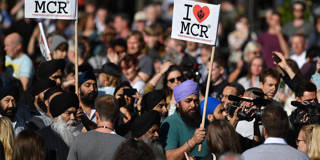Those who live in and around Manchester and other cities need to feel part of their community and share its aspirations. Residents who identify with their community are less likely to harm it – whether through terrorism or other anti-social behavior – and are more likely to contribute actively to its renewed vigor.
MANCHESTER – I am a proud Mancunian (as the people of Manchester are known), despite the fact I haven’t lived here permanently since I left school for university when I was 18. I was born in St. Mary’s hospital near the city center, was raised in a pleasant suburb in South Manchester, and attended a normal primary and junior school in a nearby, tougher neighborhood, before attending Burnage for secondary school. Thirty-eight years after I attended Burnage, so too, apparently, did Salman Abedi, the suspected Manchester Arena bomber.

MANCHESTER – I am a proud Mancunian (as the people of Manchester are known), despite the fact I haven’t lived here permanently since I left school for university when I was 18. I was born in St. Mary’s hospital near the city center, was raised in a pleasant suburb in South Manchester, and attended a normal primary and junior school in a nearby, tougher neighborhood, before attending Burnage for secondary school. Thirty-eight years after I attended Burnage, so too, apparently, did Salman Abedi, the suspected Manchester Arena bomber.